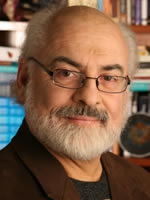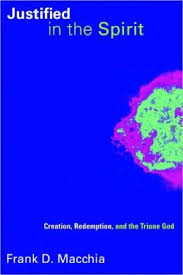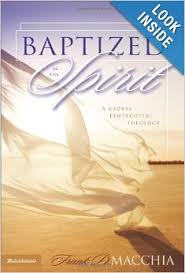Frank Macchia on the Gifts of God to the Church
Pentecostals and Reformed affirming the value of all of the New Testament Gifts
Frank Macchia
In the context of this hoopla over cessationism, it might be interesting to see how the issue of spiritual gifts was dealt with in the first round of international talks between the World Alliance of Reformed Churches and the Pentecostals (of which I was a participant). We agreed together that all of the gifts from the New Testament have value today, but that both global church families tended to favor different lists of gifts from the New Testament. In response, we affirmed that no single list of gifts is to be held up as all determinative for judging the quality of a church’s spirituality and that both sides must expand its horizons by embracing the value of the gifts cherished by the other side. Here’s the important paragraphs, a joint statement shared by both sides:
“The participants in this Dialogue affirm that the gifts of God to the Church are real, the Holy Spirit is the Giver of gifts to the Church, and the gifts are given to the Church to work together for the common good. Reformed as well as many Pentecostal churches acknowledge that their understanding of the Spirit’s gifts is broader than the classic list of spiritual gifts in 1 Corinthians 12:8-10… As we, the Reformed and Pentecostal participants in this Dialogue, have reflected on the biblical texts and the life of the Church, we have been convinced that no single gift or set of gifts is normative for every believer, every congregation or every church in every time, or place. We share the conviction that gifts are not permanent possessions of believers or congregations, for the Spirit gives various gifts at different places as those gifts are needed. We also agree that no biblical listing of gifts is a template to be laid over the entire Church. On the one hand, we recognize that many Pentecostals limit the gifts of the Holy Spirit to those mentioned in 1 Corinthians 12:8-10. They do not value the charismatic nature of those mentioned elsewhere in the Bible (Cf. 1 Corinthians 12:27-30; Romans 12:3-8; Ephesians 4:11; 1 Peter 4:10-11). On the other hand, many Reformed Christians recognize the theoretical possibility that the gifts mentioned in 1 Corinthians 12:8-10 might somewhere be appropriately exercised, but normally they do not encourage or even sanction them to be exercised in their own services. In addition, there are those in both traditions who value one gift over the contribution of another, or who seem to limit the Holy Spirit’s sovereign distribution of gifts… It is our mutual conclusion that these positions are ultimately no less than concessions to the reality of our separated existence as Christian churches. We believe that those who embrace these positions, or elevate their status by giving voice to them in doctrinal or political statements, must be challenged to recognize their limitations. They need to be asked to broaden their understanding of the gifts, which the Holy Spirit desires to give to the Church. Only in so doing can they enter fully into the life of the Church as the body of Christ. Only in so doing can they participate in what it means to be a priesthood of all believers. Only in so doing can they experience the fullness of what Joel prophesied, and Peter proclaimed on the Day of Pentecost, that God’s Spirit would be poured out on all flesh, thereby equipping them to participate in God’s work in the world.”
(#54-55, 57, Word and Word and Spirit, Church and World, The Final Report of the International Dialogue between Representatives of the World Alliance of Reformed Churches And Some Classical Pentecostal Churches and Leaders 1996-2000).
(PS- there was not a cessationist among them)
 Frank D. Macchia, ThD (University of Basel, Switzerland) is professor of theology at Vanguard University in Costa Mesa, California. He has served as president of the Society of Pentecostal Studies and is a member of the Faith and Order Commission of the National Council of Churches. Frank is senior editor of Pneuma: The Journal for the Society of Pentecostal Studies.
Frank D. Macchia, ThD (University of Basel, Switzerland) is professor of theology at Vanguard University in Costa Mesa, California. He has served as president of the Society of Pentecostal Studies and is a member of the Faith and Order Commission of the National Council of Churches. Frank is senior editor of Pneuma: The Journal for the Society of Pentecostal Studies.
Category: In Depth





